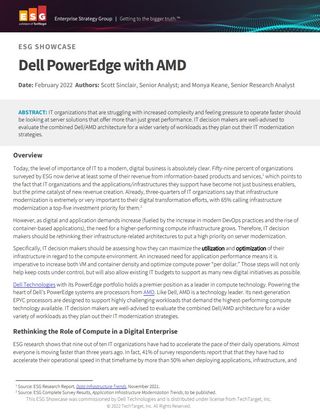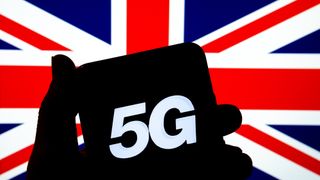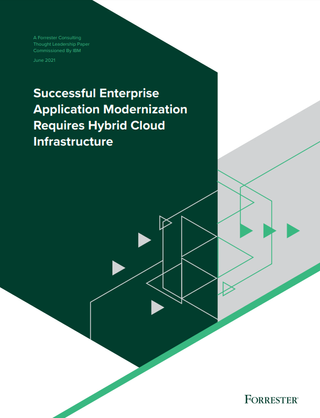What is 5G and how far are we from rollout?
4G's successor promises 1ms latency and multi-Gbit/sec bandwidth, but can it deliver?
The UK’s first 5G network was activated in May 2019 by EE, marking a summer in which the four major telecommunications providers raced to switch on their networks as early as possible. Lewis Hamilton helped switch on Vodafone’s network for second place, with Three and O2 taking longer to launch their full 5G networks.
Since then, smartphone manufacturers have joined the fray, and most new mobile phones released today support 5G in some capacity.
Businesses are rapidly curating more tech and generating more data, which is driven by the rise in internet-connected technology known as the Internet of Things (IoT). This shift has required a faster, stronger, and more reliable internet connection, with 5G finally appearing to be the answer to this challenge.
5G is the fifth-generation technology standard for cellular networks. Designed to provide average download speeds of 150-200Mbps, 5G is around 10 times faster than its predecessor, 4G, and more than 30 times faster than 3G. At its peak, 5G speeds can reach above 1Gbps, which users could use to download a full HD film in just under three minutes. By comparison, downloading such a file using 4G would take more than 15 minutes.
4G will fade away

5G provides low latency, greatly improved speeds, and more connectivity and capacity for billions of devices. It is especially useful in areas such as IoT, virtual reality (VR), and artificial intelligence (AI). 5G sensors connected to these systems bring about better-informed and faster business decisions.
However, 5G is still far from being fully deployed, with 4G still in high demand, and plans to extend 4G to London Underground stations and tunnels by the end of 2024 still going ahead.
"While 5G demand is still gathering momentum, 4G will remain an important part of the wireless ecosystem," says Tata Communications COO John Hayduk. "But it's expected that by 2025 investment and innovation in 4G will slow down as 5G takes prominence. In tandem, older 2G and 3G systems will begin to disappear from some markets altogether."
Get the ITPro. daily newsletter
Receive our latest news, industry updates, featured resources and more. Sign up today to receive our FREE report on AI cyber crime & security - newly updated for 2024.
5G is more expensive

Current 5G mobile plans are more expensive than their 4G alternatives, and much of the country remains locked out of coverage altogether. The earliest 5G customers will continue to be charged more, while mobile operators seek a quick return on their spectrum investments, Hayduk says.

Dell PowerEdge with AMD
IT applications and infrastructure are the prime catalyst for new revenue creation
"In Europe and the US, operator strategies that are not built around 5G are rare. It strikes me however that it is bold to assume that consumers will take up 5G the moment it's available and that 5G will underpin the modern digital business from day one. The economics of providing 5G connectivity will make it difficult for mobile operators to drive costs low enough to make moving to 5G tempting for users," he said.
"Operators are spending huge amounts of money just for the spectrum space to provide 5G connectivity, and they will have to pass the cost on to their customers. Increasingly price-sensitive consumers won't stand for price rises and will stick with 4G. They will change their behaviours, picking and choosing which apps are stationary and which are mobile. They will use WiFi for data-hungry video and VR apps, created for a 5G world, which will remain stationary."
More 5G standards are needed

Although several telecoms have already rolled out 5G for their customers, Dr William Webb, a fellow at the Institute for Electrical and Electronic Engineering and CEO of the Weightless SIG, says that common standards are needed if 5G is to evolve.
"Because the definition of 5G is so vague, it's hard to say far we are from rollout. If 5G is just whatever we roll out in say 2020, then by definition we're three years from rollout – but what that will be and how different it will be from what we have today? Korea Telecom claims it will deploy 5G this year, ready for the Winter Olympics, and Verizon also aims to start fibre-replacement deployment this year or next," he says.
"However, without any standards, whatever they deploy is not a globally agreed solution. Some suggest that a 'real' 5G – with a carefully developed and worthwhile new technology – might not occur until 2025."
The International Telecommunication Union — a group within the UN dedicated to the oversight of telecommunications technology around the globe — initially defined 5G in its IMT-2020 standard. This set out that a network cell must deliver a peak data rate for downloads of 21GB/sec and an uplink peak data rate of 10GB/sec, with maximum latency also set at 4ms.
However, the 3rd Generation Partnership Project (3GPP) has set out a range of 5G standards, which has resulted in some 5G download speeds as low as 1GB/sec.
3GPP sets out standards, wavebands that can be used, and minimum speeds for the international telco community. UK providers must remain within these boundaries but are free to exceed them if they can, or are willing to against the cost of maintaining higher-speed networks.
5G will be huge for IoT

In the past thirty years, the internet has grown from a handful of websites run by experts and enthusiasts, to an unimaginably large network that is a dominant force in the lives of billions. And as connected technology and appliances become ever more common, the internet is set to get even bigger. The Internet of Things (IoT) is an industry that could be worth trillions by the end of the decade, as more and more everyday objects become connected to the web. To support this new revolution, a stronger, denser type of mobile connectivity is needed, and 5G is perfect for this role.
According to Mark Skilton, a professor of practice at Warwick Business School, 5G is designed to support the future of technological economics. While 4G has been instrumental in supplementing the rise of mobile apps and social media networks, 5G will be the protagonist in the rollout of tech such as smart offices and driverless cars.
"It enables real-time mission, critical rapid response – such as connected self-driving cars, Internet of things sensors, mobile devices that will drive connected buildings, smart cities, and new skills and services."
Rahul Patel, senior vice president and general manager of Qualcomm’s connectivity & networking business unit, has said that in terms of the innovation it will bring, 5G is only in its infancy:
“You will see 5G in cars, in industrial IoT, and a lot of infrastructure, and then there are medical applications. The curve for adoption and deployment and innovation on 5G is still ahead of us,” he told IT Pro at the 2022 Mobile World Congress in Barcelona.
Developments in 5G will “transcend a wider set of application spaces and market segments with 5G because there's so much more to offer," he added.
An example of the great potential that 5G holds for practical application can be found in the Suffolk town of Felixstowe. It is home to the UK’s largest container port, which is set to use 5G-enabled IoT sensors to predict maintenance of quay cranes and supply communications to remote control yard cranes. The project is part of the government's 5G Testbeds and Trials programme (5GTT) also saw £28 million of investment awarded to nine nationwide 5G projects that included trailing 5G-powered cargo ports, as well as improving visitor experiences at the O2 Arena, MK Dons stadium, and the Eden Project.
When was 5G introduced in the UK?

South Korea began its first research and development into 5G as far back as 2008, but it would be quite sometime before the desired results and relevant auctions would allow the technology to be applied practically to networks.
In 2016, the UK government dedicated £16 million for 5G research conducted by the Universities of Bristol and Surrey, as well as King's College London, to deliver an end-to-end 5G trial network by 2018.
The following year, then-chancellor of the exchequer Philip Hammond stressed the importance of investing in new technologies and improving the UK’s networking infrastructure. Out of the £500 million budgeted by the government for new technological innovations, £160 million was set aside for new 5G infrastructure. This included a £10 million project with the National Cyber Security Centre (NCSC) as well as £5 million for the trial of 5G networks.

Successful enterprise application modernisation requires hybrid cloud infrastructure
Optimise business outcomes with a secure and reliable modern infrastructure
FREE DOWNLOAD
That same month, network operator EE became the first UK provider to deliver a successful 5G lab test, achieving impressive download speeds of 2.8Gbps. At the time EE, as well as Three, were embroiled in legal proceedings with regulator Ofcom, as the two network operators were against the regulations surrounding the planned 5G spectrum auction. Three tried to have the auction capped at 30%, a move that would have prevented larger providers from bidding against smaller rivals.
However, EE, then the owner of the largest 4G network, argued against the restrictions that the cap would impose. Ofcom accused EE and Three of derailing the rollout of the technology, as the spectrum auction was widely considered to be a major milestone in the building of groundwork for 5G.
The case was escalated to the Court of Appeal, where, in February 2018, a swift deliberation upheld Ofcom’s decision to continue with the auction.
Nonetheless, despite the final ruling, the ensuing legal battles became a clear sign that the government was finding it challenging to balance the need for 5G innovation with the demands of mobile operators.
The problems for UK 5G rollout were compounded in 2020, with a government decision to remove all existing Huawei equipment from the UK 5G network by 2027, citing national security concerns. This was expected to delay 5G rollout by two years, due to the heavy reliance there had been on Huawei equipment up to the point of the decision.
Moreover, by the end of January 2023 telecom operators must have removed all Huawei equipment from the core of the network, and limit the use of Huawei equipment in non-core parts to 35%. However, as of June 2022, BT has said that it will likely not meet this deadline and that an extension is required.
The final UK spectrum auction took place in April 2021, with no complaints from the involved mobile operators. The £1.38 billion auction of 5G spectrum saw EE and Telefónica-owned O2 put the most into available spectrum, £475 million and £448 million respectively. Three bought £280 million worth and Vodafone spent the least with £176.4 million.
Network operators will use the new spectrum to deliver advanced mobile services across the UK. But over the next few years, the same issues that hampered previous development will still negatively impact innovation, such as difficulty accessing land for infrastructure. Ofcom is still yet to auction off any millimetre wave (mmWave) spectrum. The benefit of mmWave of this extreme high-frequency waveband, which lies somewhere between 25 and 300 GHz, is its improved speed over other wavebands. With mmWave on the horizon, there is still much room for growth within the sector.
A May 2022 Ofcom report estimated with “high to very high confidence” that 5G reached around half of all outdoor premises in the UK. The actual range was broad, 42-62%, but it represents a marked improvement over 2020’s figures which stood at just 30% of the UK.
Bobby Hellard is ITPro's Reviews Editor and has worked on CloudPro and ChannelPro since 2018. In his time at ITPro, Bobby has covered stories for all the major technology companies, such as Apple, Microsoft, Amazon and Facebook, and regularly attends industry-leading events such as AWS Re:Invent and Google Cloud Next.
Bobby mainly covers hardware reviews, but you will also recognize him as the face of many of our video reviews of laptops and smartphones.





